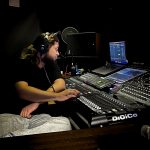 Produced by Guest blogger
Produced by Guest blogger
 This is a guest blog post by current student Cara Ginnifer, studying BSc (Hons) Operating Department Practice.
This is a guest blog post by current student Cara Ginnifer, studying BSc (Hons) Operating Department Practice.
Hello, my name is Cara, I’m a student ODP. I initially heard about the NHS Learning Support Fund (NHS LSF) through student finance. Most students are aware of student finance but as allied health professionals we can apply for additional funding. Students are entitled to the below:
- A Training Grant of £5,000 per academic year
- Parental Support of £2,000, if you have at least one dependent child under 15 years, or under 17 years if registered with special educational needs
- Reimbursement of excess costs incurred on practice placement for travel and temporary accommodation costs (Travel and Dual Accommodation Expenses)
- Students experiencing financial hardship (Exceptional Support Fund)
There is a nine-month deadline for applying for the NHS learning support fund. I applied straight away so I didn’t need to struggle financially.
How do you apply?
The application process is quick and simple. Initially you need to register, you’ll need your email address, telephone number, name, date of birth and address, then you create a username and password. A link is sent to you email address to activate your account, this needs to be done within 72 hours. Once activated you can apply by providing details of your course including course name, university, academic year, length of course, course year and attendance. Then you need to upload a copy of your student finance letter.
It’s easy to apply for following years because you already have a log in, all you need is your course details and to upload your evidence again.
Application can be made via https://www.nhsbsa.nhs.uk/nhs-learning-support-fund there are guidance documents available and various ways to contact NHS LSF for assistance.
Are you eligible?
Students can apply for funding if they are studying at university in England, are eligible for tuition fee and maintenance support from a student loan company and are starting any of the below pre-registration undergraduate or postgraduate courses from September 2020:
- dental therapy or dental hygiene (level 5 and 6 courses)
- dietetics
- midwifery
- nursing (adult, child, mental health, learning disability, joint nursing and social work)
- occupational therapy
- operating department practitioner (level 5 and 6 courses)
- orthoptics
- orthotics and prosthetics
- paramedics (DipHE and FD courses are not eligible for NHS LSF)
- physiotherapy
- podiatry/chiropody
- radiography (diagnostic and therapeutic)
- speech and language therapy
When will you be paid?
Similarly, to student finance the money is split into three instalments. These are paid into a bank account of your choice. The payments are made at different times to student finance, which is helpful when budgeting. I started my first year in September 2020, my instalments were as below:
- First instalment – November = £1650
- Second instalment – March = £1650
- Third instalment – July = £1700
It’s important to note payment is only made once your university has confirmed your attendance. Attendance dates are shown below:
- September/October in attendance on 1 November
- January/February in attendance on 1 March
- March/April in attendance on 1 May
How did it help me?
I’m a mature student, who has their own property and lives alone. Alongside student finance, I used the money to pay myself a ‘wage’ each month which covered my bills. This was a huge weight off my shoulders, it means that I don’t have to constantly worry about money. It is difficult having a large sum of money in my account and not splurging it on new clothes and shoes; but I need to be sensible and if I have money left over, I can treat myself. The money doesn’t need to be paid back so why wouldn’t you apply?
Information provided is accurate at the time of publishing.
 The low down on student loans
The low down on student loans A BU Maintenance Bursary made all the difference for Megan’s student experience
A BU Maintenance Bursary made all the difference for Megan’s student experience My experience as an ODP student
My experience as an ODP student How bursaries have impacted my HE journey
How bursaries have impacted my HE journey








